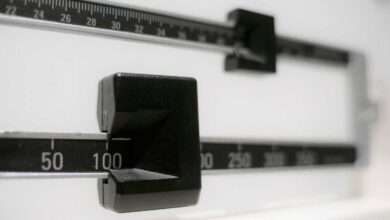As the sun begins its downward trajectory into nightfall, the lake is still and quiet. Well, almost.
On a drum’s beat, 20 oars simultaneously propel a 40-foot boat through the water. The paddles are powered by 20 women, clad in neon pink T-shirts. Their song breaks the evening silence.
Having cancer really sucks, lose your hair and spend big bucks.
Some have two and some have one, some have none but still have fun.
We love to paddle in the sun. At AJ Jolly we have fun …
The sport is dragon boating and the athletes are breast cancer survivors.
Every Tuesday evening and Saturday morning, a group of survivors and supporters gathers for training.
For the Kentucky Thorough-Breasts, this is no extracurricular endeavor.

It’s serious business.
The team is gearing up for its first competition in two years in Sevierville, Tennessee. But the main event was supposed to be their home competition, the 11th annual Kentucky Dragon Boat Festival, on Saturday, where breast cancer survivor and community teams from across the region were to gather to celebrate “surviving in sync.”
But many of the survivors are immunosuppressed – or just careful – and the day's event was canceled due to the ongoing COVID-19 crisis.
But this group knows a little about getting through obstacles.
Because that’s what these women do – survive. They’ve faced breast cancer and won, and now they use that same strength to endure through rigorous practices, mentally tough competitions and the loss of teammates together.
It’s about living

Dragon boating saved Janet Rogers’ life.
At 74, Rogers is the oldest member of the Kentucky Thorough-Breasts. When she joined the team in 2012, she had been suffering from chronic fatigue for over five years, partly because of the trauma her body underwent during a lumpectomy and radiation. Due to the fatigue, she said she hadn’t been able to motivate herself to exercise in years. Life’s excitement was dulled.
One day, her friend invited her to the Kentucky Thorough-Breast’s practice. Rogers reluctantly accepted.
As with most newbies, the experience was far from love at first stroke.
That first year, if her friend missed practice, Rogers wouldn’t be there either. The second year, she came regardless, but she still didn’t feel strong in the boat. The third and fourth years, everything clicked. Rogers found herself looking forward to practices, feeling more capable in the water and her chronic fatigue had all but disappeared. Life was brighter.
Now, nearly a decade after her first practice, Rogers is all-in. She’s co-chair of the Kentucky Dragon Boat Festival, and she said she would never want to move away because then she’d lose her team.
“It takes up my time and it's because I want it to,” she said. “My goal is to continue paddling for at least 10 more years, if not 20."
Rogers said she fears she wouldn’t be doing anything “if it wasn’t for this,” adding that it makes you “excited about living.”
Wrong about rowing

For decades, common medical lore ruled that breast cancer survivors should avoid repetitive upper body movements, at all costs. The theory was that since lymph node-removal surgeries common among breast cancer patients cut into their pectoral muscles, survivors would be unable to engage in any kind of upper body exercise, lest they develop lymphedema, a swelling caused by a lymphatic system blockage.
The problem? This assumption had never been tested.
In 1996, Dr. Don McKenzie of the University of British Columbia decided to try to refute the theory with a six-month upper-body exercise program for 24 breast cancer survivors. Dragon boating was perfect – it targeted the right muscles and the boat didn’t tip as easily as other rowing vehicles.
If the experiment failed, McKenzie risked giving two dozen women life-altering lymphedema. If it succeeded, though, life would change for millions of survivors.
The women named their team Abreast in a Boat and, after six months, none had developed lymphedema. In fact, moving the pectoral muscles again gave survivors a lesser chance of sustaining injuries or long-term effects of cancer, while providing them a positive, supportive environment.
The experiment began a trend, with breast cancer survivor dragon boat teams quickly popping up throughout Canada, then spreading to the United States and beyond.
It was the world’s middle finger to cancer.
"It's kind of like, 'Yeah, I'm alive and look what look at what I can do,' ” Rogers said. “You know, ‘in your face, cancer’ kind of thing. We're doing good.”
Underestimate them at your peril

There’s no question that the women of the Kentucky Thorough-Breasts are athletes –athletes who just happen to be breast cancer survivors, not the other way around. No qualifiers necessary.
(Though there is an occasional difference: After the Kentucky Thorough-Breasts’ first out-of-town competition, the Marriott’s front desk received a strange call. One of the paddlers had forgotten her prosthetic breasts in the hotel room, and could they please find and send them back?)
Different, maybe, but in ways that have nothing to do with their athleticism or their competitive drive. They are just athletes with history.
That’s how they’d prefer to be perceived, said Coach Priscella Elgersma, but with their neon pink shirts and an average boat age in the mid- to late 50s, the women are used to being underestimated.
The stunned looks of Cross Fit-types as the women approach, their blades flashing in the sun completely in sync, never gets old. Their skilled technique often trumps sheer power, Elgersma said.
“Sometimes the other teams say, ‘Oh that’s just a bunch of women with pink shirts on,’ and then we show them up a little bit,” said team member Phyllis Kelsch. “There have been some really strong men’s teams we’ve gone up against and we’ve actually done well against them.”
The women aren’t trying to hide that they are breast cancer survivors. It’s a part of their identity, for better or for worse. Prosthetic breasts and all.
But they aren’t weak, and they aren’t content with participation. Elgersma, a former community dragon boat coach in Vancouver, British Columbia, who isn’t a survivor herself, wasn’t sure how to navigate this during her first year coaching the team.
“I was like, oh, very touchy feely like, ‘Oh this is great!’ and then they're like, ‘No, no, we want to be competitive and win.’ ”
No one fights alone

Elgersma dons a floppy pink hat and sunglasses as she shouts directions to the women, her tall, imposing demeanor marking her as the clear team leader. She demands a lot out of the team, because they demand so much of themselves, she said. Trying your best is great and all, but at the end of the day, everyone wants to be the first across that line.
The hard work creates a bond between the women, Elgersma said. When paddling for themselves isn’t enough, doing it for the team’s sake offers additional motivation.
“It's not a game like volleyball or basketball or softball where one person is one position,” she said. “Everybody from row one, seat one to row 10, seat 20, they're all just as important because that boat doesn't work if they're not paddling completely in sync.”
Races haven’t gotten any easier over the years, Rogers said. They’ve always been and always will be really, really tough. When she’s in the thick of the 250-meter races, pushing her limits, Rogers remembers that everyone is being challenged, just like her.
"I think we all struggle with completing that race, you know, not quitting, and just keep on paddling no matter what,” she said. “And I have. I have so far.”
While winning is an important component of sports, it’s not the only component, Elgersma said. The camaraderie extends beyond the water. The “Ladies Who Lunch” go on vacations together and “The Best Day Ever Group” hangs out outside of practice. The women go out to eat after competitions, attend each other’s retirements and visit art museums together. One team member, a metastatic patient, receives infusions from her teammate, a nurse.
The friendship crosses borders, too. At the 2018 International Breast Cancer Paddler’s Commission Dragon Boat Festival, a four-year event some team members compared with the sport’s Olympics, the Kentucky Thorough-Breasts practically gave their competitors the shirts off their backs, Elgersma said.
While they placed well among the 121 teams from 18 countries competing against each other in Florence, Italy, their popularity soared afterward, with the widespread international exchange of the Kentucky teams’ pins and team merch due to their iconic name.
As a result, all competitive tension was left behind in the water, individual teams and countries indiscernible among the sea of pink.
“They just understand each other, they understand the journey, like none of us can understand that each of them have been on,” Elgersma said.

The race goes on
The dragon boat sets out on A.J. Jolly Lake south of Alexandria, just like any other Tuesday or Saturday. But this practice, one spot is empty.
When the women reach a quiet section of the water, they pull their paddles in. They talk about their missing teammate with her family members, who have paddled out with the team.
After sharing stories, laughter and tears, the women toss roses into the water. Before paddling quietly back to the dock, honoring and remembering their former teammate with each stroke, their song once again breaks the lake’s silence.
… When life gets tough we paddle through, to find a cure for me & you.
Paddle deep and paddle hard. Give your best, you are a star.
Race for those in heaven now. Race like hell and make ‘em proud.
Since the Kentucky Thorough-Breasts’ 2008 establishment, they’ve lost six paddlers and supporters. At their funerals, they wear their team uniforms, forming an arch over the casket with their paddles. Afterward, they share a private rose ceremony on the water with their teammate’s family members.
Even in their final days, many paddlers can be found at A.J. Jolly.
"Some of them actually came, I mean literally days before they passed away, they thought the team was so important,” Elgersma said. “It was something that was so ingrained in their heart and soul, that it was their place of peace.”
But empty seats don’t stay empty forever. Sadness doesn’t disappear, but it fades to the background. The women keep paddling, focusing on one stroke at a time, together.
"You feel for the family and you just hope that doesn't happen to you or any of the other teammates,” Rogers said.
“You just, you go on. You move on.”

Source link








